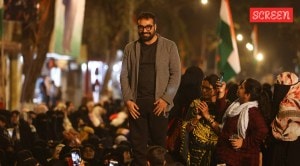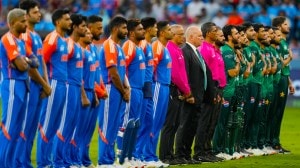India’s stand vindicated as US owns up bio war tests
Admission by the United States that in 1965, it released Aedes aegypti mosquitoes on a Pacific island as part of its biological warfare test...

Admission by the United States that in 1965, it released Aedes aegypti mosquitoes on a Pacific island as part of its biological warfare test programme has, according to scientists, vindicated the Indian Government’s decision to close down a similar US-sponsored mosquito project here in the early ’70s.
Indian scientists who had worked on the project say they are convinced they were helping the US biowarfare research under the cover of a health programme to control malaria.
Former director of the National Institute of Virology N.P. Gupta said that then prime minister Indira Gandhi ‘‘acted correctly’’ by ordering closure of the project before the planned massive release of Aedes aegypti mosquitoes — which transmit yellow and dengue fevers — in 1975 at Sonepat, Haryana.
The project was aimed at finding out the range and survival of these mosquitoes and how they penetrated homes once released from the centre.
Three weeks ago, the US Defence Department de-classified documents listing as many as 46 secret biological and chemical weapon tests conducted at the height of the Cold War. In one such trial, Aedes aegypti mosquitoes were released off the coast of Baker Island to obtain information on mosquito biting habits, mosquito trap technology and operational and logistical problems .
A senior medical entomologist and former employee of the Indian Council of Medical Research (ICMR) who was also associated with the project, P.K. Rajagopalan, said the Sonepat project had identical aims as the one conducted on Baker Island except that it was planned on a large scale, using mosquitoes reared at a special facility in New Delhi, built with funds from the US public health service and routed through WHO.
Prior to its closure, the US project in India had drawn media criticism and a parliamentary committee had even been asked to probe its preoccupation with Aedes aegypti species, particularly as it caused yellow fever, a disease non-existent in India. Indira Gandhi ordered the project closed despite mild protests from WHO and a denial by the US State Department that it had anything to do with biological warfare.
Rajagopalan expressed surprise at the different standards employed by the US in the case of Sonepat and Baker Island. The latter was unpopulated and remote from the mainland, the trial used volunteers and the mosquitoes were eradicated after the trial was over. However, no such conditions existed in Sonepat, whose entire population of half a million would have become unwilling volunteers in the project.
Photos


- 01
- 02
- 03
- 04
- 05





























